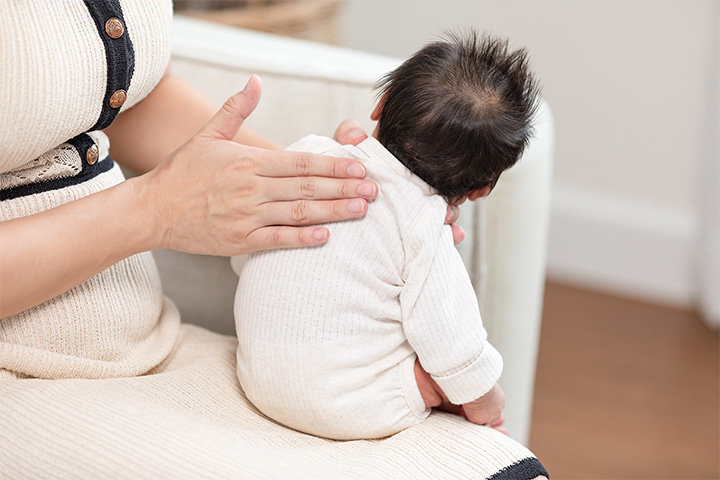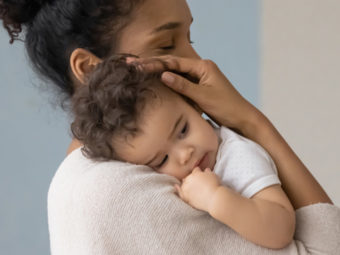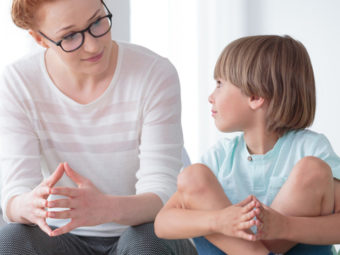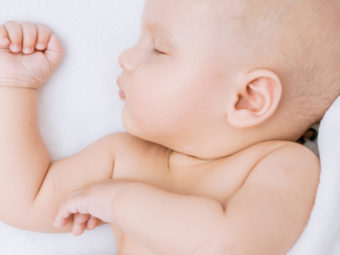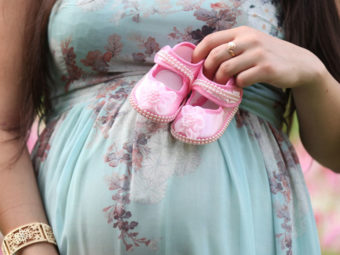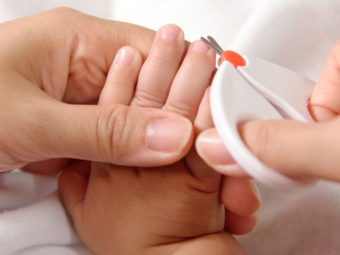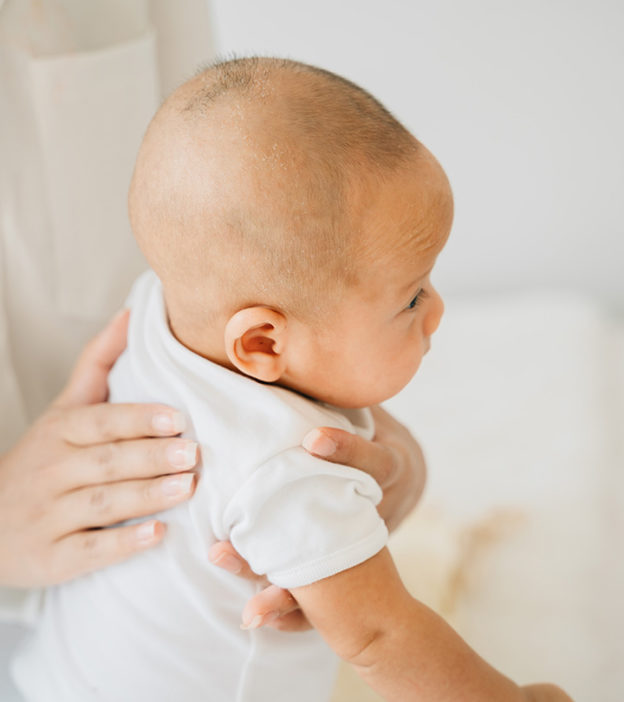
Image: Shutterstock
引入一个刚出生的世界是一个神奇的前女友perience. From their tiny fingers to their button noses, every little detail of your baby is fascinating. But as you revel in the joy of your newborn’s arrival, you might also encounter something that might seem a bit perplexing: hiccups. Yes, even the tiniest of humans can experience hiccups! In this article, we’ll talk about newborn hiccups, exploring why they happen, how to deal with them, and whether they’re something to worry about. Read on to know more!
Why Do Newborns Get Hiccups?
As you gaze down at your baby, it’s natural to wonder why such a tiny creature is experiencing something as common as hiccups. The truth is, hiccups in newborns are quite common and can occur for various reasons. One primary factor is your baby’s developing diaphragm – the muscle that helps with breathing. The diaphragm can sometimes contract involuntarily, causing the sudden intake of air, which is what a hiccup is.
Another factor could be your baby’s feeding habits. Whether you’re breastfeeding or bottle-feeding, sometimes your little one might gulp down the air along with milk. This excess air can irritate the diaphragm, triggering those adorable yet unexpected hiccups.
How To Get Rid Of Newborn Hiccups
Image: Shutterstock
Now that you know why those hiccups are happening, let’s talk about how to help your little one find relief. The good news is that most newborn hiccups tend to go away on their own. However, if you’re looking to speed up the process, here are a few tricks you can try:
1. Feed Mindfully
If you’re breastfeeding, make sure your baby is latching on properly to prevent excessive air intake. If you’re bottle-feeding, choose a bottle with a slow flow nipple to minimize the ingestion of air.
2. Burp Strategically
Pausing during feeding to burp your baby can help release any trapped air and reduce the chances of hiccups.
3. Hold Upright
After feeding, hold your baby in an upright position for a while. This can aid in the digestion process and lessen the likelihood of hiccups.
4. Gentle Patting
Gently patting your baby’s back while holding them against your shoulder can help ease hiccups.
5. Offer A Pacifier
Sucking on a pacifier can sometimes help soothe the diaphragm and put an end to those pesky hiccups.
How To Prevent Baby Hiccups
Image: Shutterstock
Prevention is often the best strategy. While you can’t eliminate the possibility of hiccups altogether, you can certainly take steps to reduce their frequency. Here’s how:
1. Keep Feeding Sessions Calm
Picture yourself in a peaceful place, savoring a meal in a tranquil ambiance. Creating a calm feeding environment has a similar effect on your baby. Be it breastfeeding or bottle-feeding, ensure a serene setting. This helps your baby concentrate on feeding, minimizing air intake due to distractions.
2. Avoid Overfeeding
Babies communicate without words, and tuning into their cues during feeding is crucial to prevent overfeeding. Watch for signs of fullness, like turning from the nipple, slower sucking, or releasing the bottle. Overfeeding can cause a gassy tummy, elevating the chances of hiccups. Stay attentive to keep those cute hiccups at bay.
3. Stay Upright After Feeding
Just like us, babies benefit from post-meal downtime. Holding your baby upright for 15 to 20 minutes after feeding helps gravity ease digestion. This allows trapped air to rise and be released through burps, reducing the chances of hiccups. Cherish this moment, cradling your baby as you give their tiny tummy the chance to settle.
4. Tummy Time
Tummy time is more than just stomach practice. Placing your baby on their tummy stimulates abdominal muscles and aids gas movement in their digestive tract. This gentle massage effect prevents gas buildup and potential hiccups. Embrace tummy time as a fun way to aid digestion.
Are Hiccups Bad For Babies?
Image: Shutterstock
Rest assured, hiccups are generally harmless for newborns. In fact, they are a common occurrence and part of your baby’s development. Most newborns experience hiccups at least once a day, and they tend to lessen as your baby grows older. However, if your baby’s hiccups are accompanied by any of the following symptoms, it might be a good idea to consult your pediatrician:
1. Excessive Discomfort
If your baby seems unusually uncomfortable or in pain during hiccups, it’s worth seeking professional advice.
2. Interrupted Feeding
If hiccups are constantly interrupting your baby’s feeding sessions and causing them to become fussy, it’s a good idea to talk to your doctor.
3. Frequent Hiccups
While occasional hiccups are normal, if your baby is experiencing hiccups very frequently or for prolonged periods, it’s best to consult a medical professional.
In most cases, however, you can simply enjoy the cuteness of your hiccuping newborn without worrying too much.
Welcoming a newborn into your life is a bundle of joy mixed with a dash of curiosity. Hiccups might seem like a small hurdle in the grand scheme of things, but understanding why they occur and how to deal with them can provide both comfort and peace of mind. Remember, those adorable hiccups are just another charming aspect of your baby’s journey through infancy – a journey filled with wonder, growth, and countless heartwarming moments.

